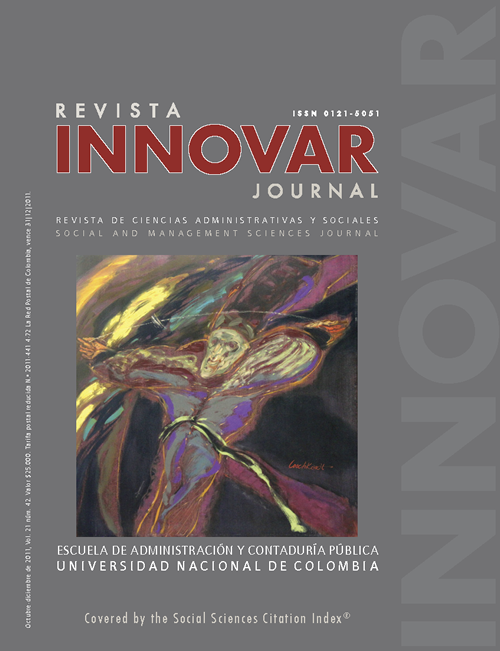Editorial
Now that there are signs of a large-scale student movement that protests against problems in the educational systems, the management of educational organizations becomes especially relevant. The main problem is how to address the demands posed by the different social segments, because the response must be aimed at achieving goals set by the government, society and the owners of educational institutions (be they public or private). This means that the administrative management of this type of organization becomes increasingly important and therefore it is necessary to understand what this management is about. The task is generally entrusted to people responsible for ensuring optimum functioning of educational institutions that have the dichotomy of dealing with management challenges that do not always follow their natural purpose, namely to educate.
To fulfill this fundamental objective along with those posed by the stakeholders can be complex due to certain social, political, economic, technological and legal aspects that not only frame their actions but also tend to change them.
This complexity requires strong leadership and a strategic plan able to coordinate the vision with the programs and objectives established by the educational institution, which makes the study of the management of those organizations ever more relevant. We would therefore call upon institutions that are seeking topics to develop that would have great potential to attract the interest of their stakeholders to look upon educational administration as a new area to explore through master's or doctoral programs applied to the realities of our countries and even to the regions within them; the inequality and huge social differences between the regions in our countries mean that the models do not function equally in them.
If we also take into account the social role of national integration, generation of opportunities in a context of fairness, economic growth and poverty alleviation that are indirectly generated through quality education, the management of educational organizations must be an obligatory topic in the developing countries.
Edison Jair Duque-Oliva
Editor in chief - innovar
Fulltime professor. Escuela de Administración y Contaduría Pública Facultad de Ciencias Económicas Universidad Nacional de Colombia, Sede Bogotá.
Cómo citar
APA
ACM
ACS
ABNT
Chicago
Harvard
IEEE
MLA
Turabian
Vancouver
Descargar cita
Visitas a la página del resumen del artículo
Descargas
Licencia
Derechos de autor 2011 Innovar

Esta obra está bajo una licencia internacional Creative Commons Reconocimiento-NoComercial-CompartirIgual 3.0.
Todos los artículos publicados por Innovar se encuentran disponibles globalmente con acceso abierto y licenciados bajo los términos de Creative Commons Atribución-No_Comercial-Sin_Derivadas 4.0 Internacional (CC BY-NC-ND 4.0).
Una vez seleccionados los artículos para un número, y antes de iniciar la etapa de cuidado y producción editorial, los autores deben firmar una cesión de derechos patrimoniales de su obra. Innovar se ciñe a las normas colombianas en materia de derechos de autor.
El material de esta revista puede ser reproducido o citado con carácter académico, citando la fuente.
Esta obra está bajo una Licencia Creative Commons:





















